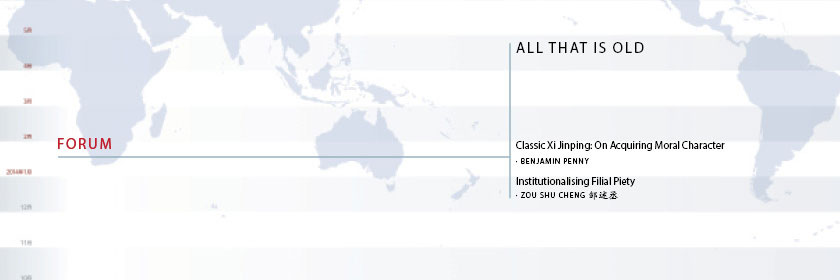Classic Xi Jinping: On Acquiring Moral Character
by Benjamin Penny

In September 2013, Reuters reported ‘three independent sources’ as saying that Xi Jinping believes China is ‘losing its moral compass’ as a result of the country’s extraordinary economic growth and the national mania for making money. Xi believes that Confucianism, Buddhism and Daoism can help to provide a moral bulwark against corruption. One of Reuters’ sources claimed that Xi realises his anti-corruption campaign can only ‘cure symptoms’ while ‘reform of the political system and faiths are needed to cure the disease of corruption’.




